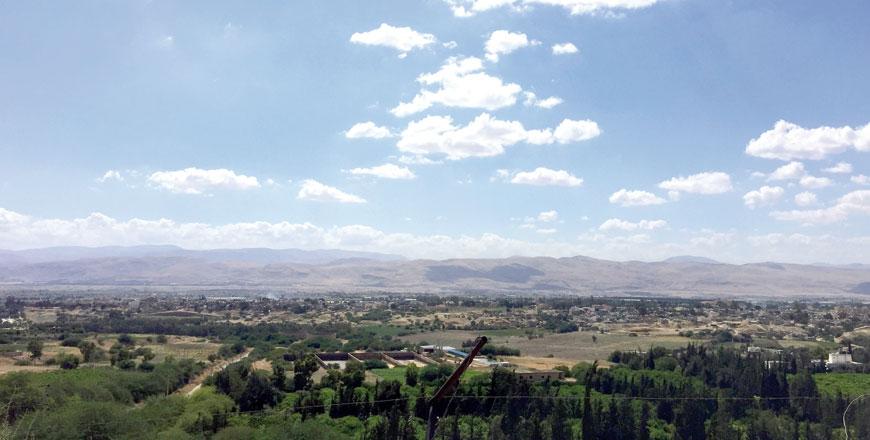- Local News
- Tue-2020-06-23 | 04:43 pm

"The coronavirus crisis has given us an incentive to push ourselves and work harder as we were one of the few sectors that were allowed to keep working under the lockdown,” said Mahmoud Rawabdeh, a member of the Jordanian Valley Farmers’ Association.
He added that the extra demand on produce during the lockdown and the focus on selling local produce because of import restraints "will be positively reflected in farmers’ abilities to plant summer crops at low costs”.
Rawabdeh claimed that the season has been the "best season in years”, adding that the current conditions "have opened the door for the sector’s recovery after tough years that led to a large number of farmers abandoning the profession”.
Ahmed Rawashdeh, a farmer who is also a member of the Jordanian Farmers’ Union, echoed Rawabdeh’s sentiments, saying that the past season was the "best season in more than nine years”.
He added that, with the exception of the "dragon storm” in March, which caused severe damage for a number of farmers, the season witnessed a "relief in economic conditions that enabled farmers to pay their debts”.
With imports put under greater scrutiny in the past few months, the focus on local produce has allowed farmers, traders and merchants to set "better prices” for their produce and benefit from increased demand for local products.
However, President of the Jordan Valley Farmers Union Adnan Khaddam said in a statement that, although the past season "witnessed a marked improvement in the level of demand and selling prices, the beneficiaries of this trend are not the entirety of the sector”.
"Optimism cannot be the leading theme for the coming season, given that many challenges in the sector persist, among which are the high cost of production, the accumulation of debt, the continued closure of the main export markets and the lack of adequate employment in the sector,” he said.
Khaddam also stressed the need to "review government measures related to migrant workers”.









